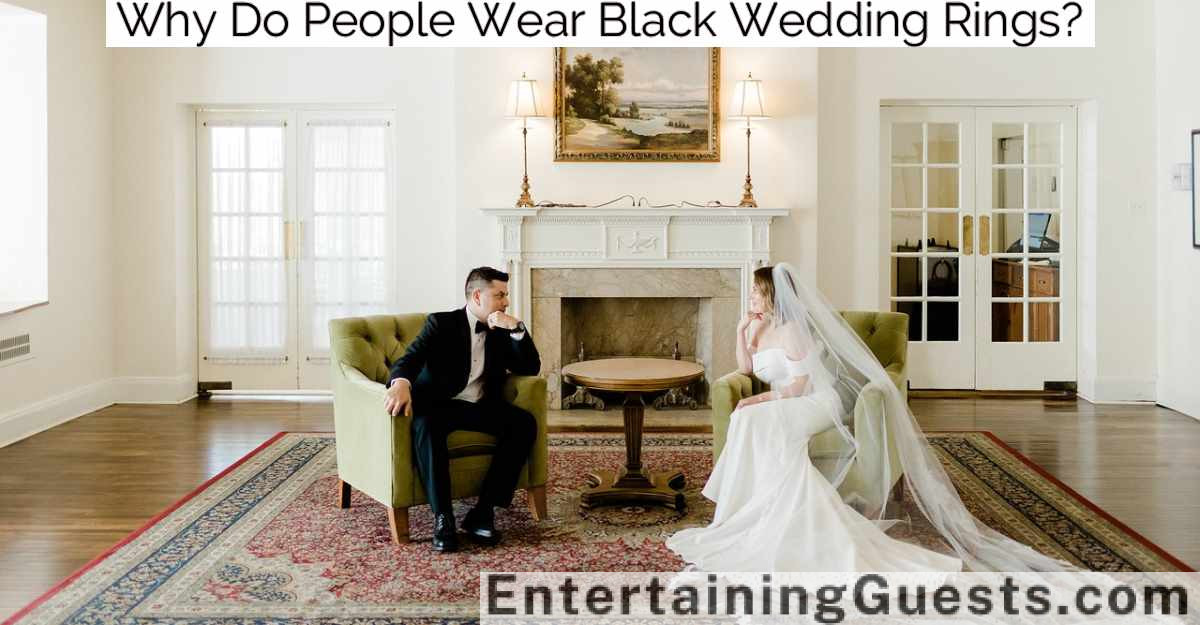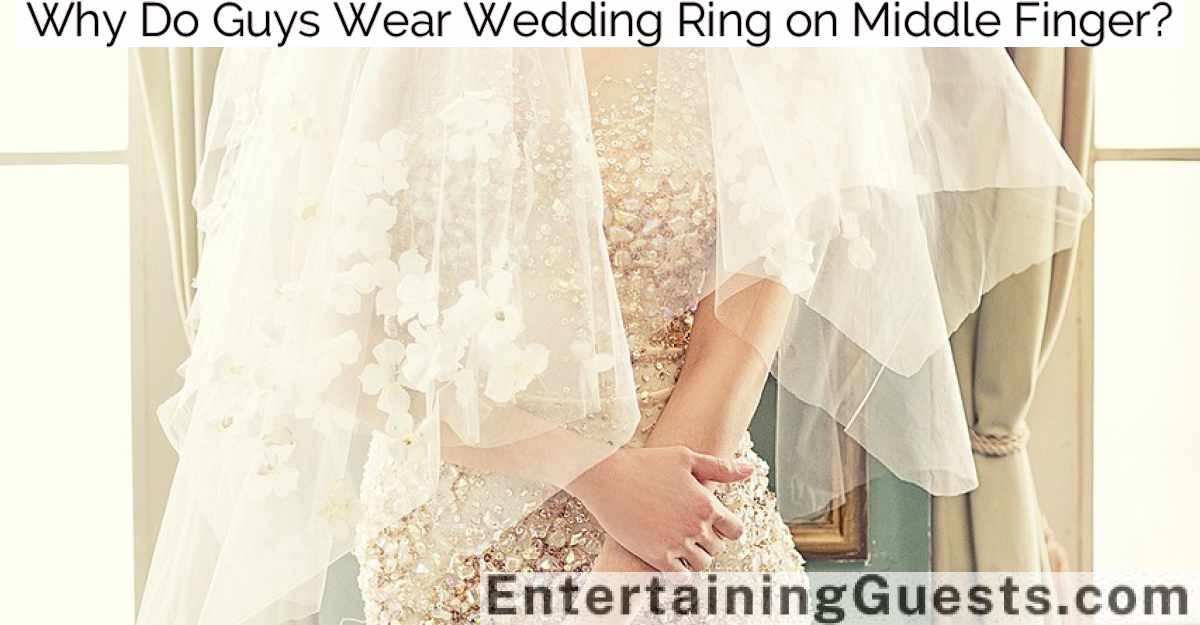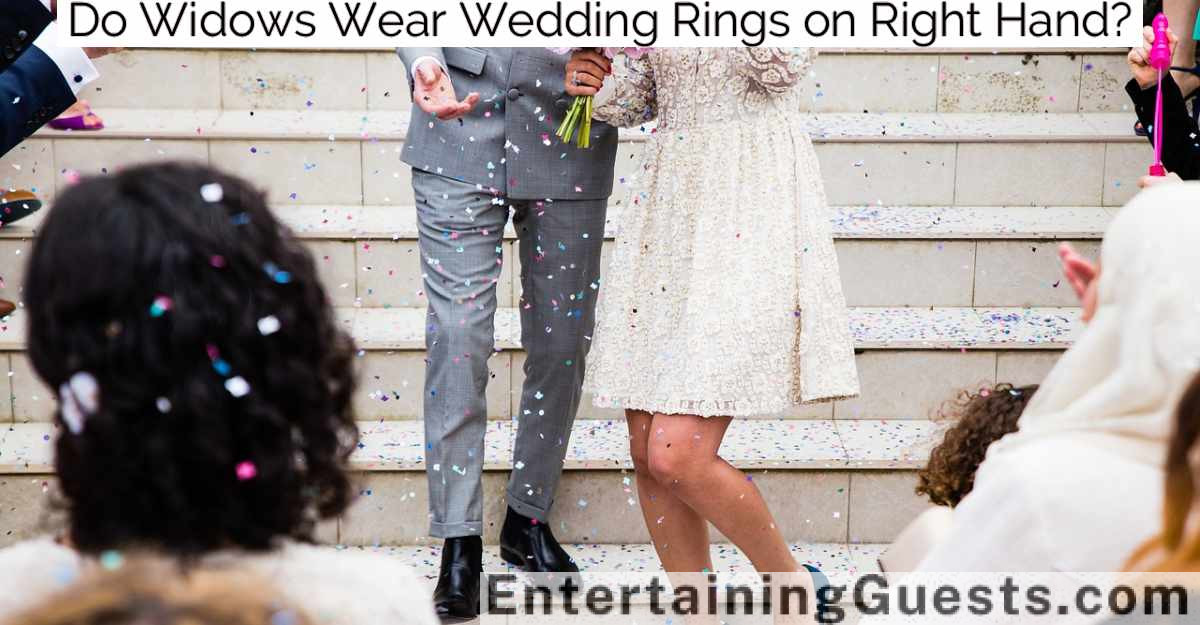People wear black wedding rings for their unique blend of modern aesthetics and profound cultural symbolism. Black, conveying depth, resilience, and sophistication, diverges from conventional matrimonial norms, appealing to those seeking individuality and strength in their marital symbol. These rings also offer practical advantages, crafted from durable materials like tungsten and titanium, suitable for active lifestyles while maintaining an elegant appearance. Additionally, their affordability compared to traditional precious metals makes them an attractive alternative. The intricate cultural meanings and evolving significance of black wedding rings reveal a complex narrative, encouraging a deeper look into their increasing popularity.
Key Takeaways
- Black wedding rings symbolize strength, resilience, and an unending bond in a relationship.
- They represent a modern and unique personal expression, deviating from traditional jewelry choices.
- Made from durable materials like tungsten and titanium, they are suitable for active lifestyles.
- Black rings are generally more affordable and cost-effective than those made from gold or platinum.
- Their distinct color and style set a bold fashion statement and reflect individual personality and aesthetics.
Symbolism of the Color Black
Representing depth and sophistication, black often signifies elegance and authority in various cultural contexts. Historically, black has been a color of paradox, embodying both solemnity and celebration. In fashion, it’s the quintessence of chic, transcending trends and generations. This duality makes black particularly appealing as a choice for wedding rings, which are symbols of eternal commitment.
In the domain of symbolism, black represents strength and resilience. It’s no coincidence that many cultures wear black during times of mourning. This color helps express the solemn nature of commitment as well as the enduring strength required to sustain a lifelong partnership. Furthermore, black is often seen as protective, warding off external threats and encapsulating the safe haven that marriage promises to be.
In addition, black can signify the unending nature of love—deep, powerful, and impervious to the fading that lighter colors might symbolize. Choosing a black wedding ring can hence be seen as a profound declaration of an indestructible bond, a physical manifestation of ’till death do us part.’ Analyzing the choice of black in wedding rings offers a glimpse into how color psychology influences personal expressions of love and commitment.
Modern Aesthetic Appeal
Black wedding rings also cater to contemporary tastes, merging minimalism with a bold statement that resonates well with modern design principles. These rings reflect a departure from traditional gold and silver bands, embracing instead a sleek, sophisticated aesthetic that aligns with current trends in fashion and design. The color black, often associated with elegance and power, offers a visually striking contrast that enhances the appeal of simplicity without sacrificing depth or emotion.
The choice of a black wedding ring often corresponds with a desire to stand apart from conventional norms. It’s a form of self-expression that rejects the commonplace in favor of individuality and uniqueness. This choice is particularly appealing to those who identify with alternative cultures or who wish to signal a break with tradition within their matrimonial symbols.
Moreover, the integration of black into wedding ceremonies through these rings can be seen as a contemporary interpretation of ritual and commitment, one that honors past traditions while boldly asserting a modern identity.
In a society that increasingly values personalization and customization, black wedding rings serve as an indication of the evolving nature of marital symbolism. They offer a distinctive, personalized touch that speaks to the aesthetic sensibilities and ideological leanings of modern couples, making them a compelling choice for those looking to make a contemporary statement through their wedding attire.
Durability of Materials
When evaluating the popularity of black wedding rings, one can’t overlook the critical role played by the durability of materials used in their manufacture.
Materials such as tungsten, titanium, and ceramic exhibit high wear resistance, which guarantees that these rings withstand the rigors of daily activities without substantial degradation.
In addition, the longevity and minimal maintenance required for these materials enhance their appeal as permanent symbols of marital commitment.
Material Wear Resistance
The wear resistance of materials used in black wedding rings, such as tungsten and titanium, greatly influences their longevity and appearance over time.
Tungsten, with a hardness level surpassing that of most metals used in jewelry, exhibits exceptional resistance to scratching. Its robustness derives from the tungsten carbide formation, a compound particularly harder than steel. This hardness guarantees that the surface doesn’t succumb easily to abrasions, which is essential for maintaining the ring’s pristine, unblemished finish.
Titanium, while slightly less hard than tungsten, still maintains a high threshold for wear. Its strength-to-weight ratio, one of the highest among metallic elements, contributes to its wear resistance without adding excessive weight. This makes titanium rings not only durable but also comfortable for daily wear.
These materials undergo rigorous processes to enhance their innate properties. For instance, black titanium rings receive a treatment involving the addition of other elements or coatings to achieve their color, which also impacts their resistance to wear.
Analyzing the microstructure of these materials reveals a dense, compact lattice that impedes the penetration of deformities, further enhancing their resilience. Consequently, the choice of material considerably determines the functional longevity of black wedding rings.
Longevity and Maintenance
Understanding the longevity and maintenance of black wedding rings hinges greatly on the durability of the materials used in their construction. Different materials exhibit varied lifespan and resilience against environmental stressors, which greatly dictate the maintenance needs and overall durability of these symbolic ornaments.
-
Titanium: Known for its robustness and lightweight properties, titanium resists corrosion and maintains its finish even under severe conditions. This metal’s hard surface prevents scratches and dents, preserving the ring’s aesthetic integrity over decades.
-
Tungsten Carbide: This material stands out for its extreme hardness, only surpassed by diamonds. Tungsten carbide rings don’t bend and are highly scratch-resistant, making them ideal for individuals engaged in manual labor or vigorous activities.
-
Black Zirconium: When exposed to high temperatures, zirconium forms a black oxide layer that enhances its corrosion resistance. This layer acts as a protective barrier, making the ring more durable against scratches and everyday wear.
-
Ceramic: Although less traditional, ceramic rings offer exceptional hardness and are resistant to abrasion. They don’t conduct electricity and are hypoallergenic, catering to wearers with sensitive skin while maintaining their luster over time.
Each material’s unique properties contribute to the ring’s longevity, demanding specific care to retain their original luster and form.
Affordability Compared to Traditional Rings
Exploring the affordability of black wedding rings relative to traditional rings reveals several economic factors that influence consumer choices.
A cost comparison overview indicates that black rings, often made from materials like tungsten or silicone, are generally less expensive upfront than those crafted from gold or platinum.
This initial price difference, combined with an analysis of long-term value retention, provides a nuanced perspective on why these contemporary alternatives are increasingly popular.
Cost Comparison Overview
Black wedding rings often represent a more affordable option when compared to traditional gold or platinum bands. This cost efficiency is primarily due to the intrinsic value of the materials typically used for black rings, such as tungsten, ceramic, or silicone, which are generally less expensive than the precious metals traditionally favored in wedding bands.
The following list illustrates several key aspects of affordability in black wedding rings:
-
Market Availability: Black rings are widely available in a variety of materials which aren’t typically subject to the often volatile pricing trends seen in gold or platinum markets.
-
Production Costs: The manufacturing process for black rings involves materials that are both more abundant and easier to work with, leading to lower production costs.
-
Maintenance Expenses: Black wedding rings require less maintenance over time, as they’re often more durable and don’t need regular polishing like gold or platinum.
-
Insurance and Replacement Costs: Generally, the lower cost of black wedding rings translates to lower insurance premiums and replacement costs if the ring is lost or damaged.
These factors collectively contribute to the growing popularity of black wedding rings as a cost-effective alternative to more traditional options, blending modern aesthetics with practical financial considerations.
Material Price Differences
Material price differences greatly influence the affordability of black wedding rings compared to traditional gold or platinum bands.
Mainly, black rings are crafted from materials such as tungsten, titanium, or carbon fiber, which aren’t only robust but also considerably less expensive than precious metals. For instance, the price per ounce of titanium or tungsten is markedly lower than that of gold or platinum, which are subject to fluctuations driven by economic and geopolitical factors.
This price disparity stems from both the abundance and the lower cost of extraction and processing of alternative metals. Titanium and tungsten are extracted at a higher yield and require less intensive refinement processes compared to the mining and purification required for gold and platinum. Consequently, the initial cost of producing a black wedding ring is lower, making them an economically attractive option for consumers.
Moreover, the technological advancements in the processing of these alternative materials have further reduced costs, enhancing their accessibility and popularity. Manufacturers can offer these rings at competitive prices, providing budget-conscious couples with stylish yet affordable alternatives to traditional options.
This economic accessibility likely contributes to the increasing trend of choosing black wedding rings.
Long-Term Value Analysis
When considering the long-term value of wedding rings, it’s evident that black rings made from materials like tungsten or titanium offer significant affordability compared to their gold and platinum counterparts. This cost-effectiveness isn’t merely about initial lower prices; it extends to durability and maintenance costs over time.
Initial Cost: Typically, a tungsten or titanium ring will cost between 50% to 70% less than a gold or platinum ring. This substantial saving allows couples to allocate funds elsewhere or save for future investments.
Durability: Both tungsten and titanium are renowned for their exceptional strength and scratch resistance. Unlike softer metals like gold, which might need professional buffing and potentially costly repairs, black rings often retain their pristine condition longer without extra care.
Maintenance: The maintenance of tungsten and titanium rings is minimal. They don’t tarnish like silver or require regular polishing like gold. This translates into fewer expenses and less effort in keeping the ring looking new.
Longevity and Style: Black wedding rings aren’t only practical but also stylish. Their bold, modern appearance remains consistent, avoiding the style shifts that traditional gold or platinum rings may undergo, therefore offering timeless appeal and value.
In the domain of weddings, where expenses quickly accumulate, the choice of a black wedding ring becomes a financially sound decision, blending style with enduring value.
Unique Personal Expression
Choosing to wear a black wedding ring often signifies a person’s desire to step away from conventional norms and embrace a distinct form of self-expression. In the context of matrimony, where traditional symbols such as the gold band reign supreme, a black ring serves as a bold declaration of individuality. This choice can be viewed through the lens of cultural resistance, where the wearer intentionally selects a symbol that diverges from mainstream expectations.
The color black itself carries rich symbolism. Historically associated with power, mystery, and strength, black can reflect a person’s intricate identity or philosophical outlook. For some, it represents a profound emotional or spiritual journey that they wish to signify through their choice of wedding band.
In addition, the adoption of black rings can be analyzed as a form of non-verbal communication, indicating a nuanced approach to life and relationships that challenges traditional marital symbols.
Psychologically, opting for a unique symbol such as a black ring may also support the wearer’s self-concept. It allows individuals to externalize their internal self-perception, aligning their personal aesthetics with their public persona.
In this way, a black wedding ring doesn’t just deviate from the norm—it actively constructs a narrative of personal autonomy and self-definition.
Popularity Among Celebrities
As celebrities adopt black wedding rings, they not only enhance their own unique brand but also influence broader public perceptions and trends in matrimonial jewelry. This adoption reflects a confluence of personal branding and cultural signaling that expands the traditional narrative surrounding wedding adornments. The phenomenon becomes particularly insightful when examined through the lens of celebrity influence, where personal choices can set widespread trends.
Celebrities often wield a disproportionate influence on fashion and lifestyle trends, and their choice of black wedding rings is no exception. This choice can be dissected into several key aspects:
-
Symbolism: Black rings are often seen as a symbol of strength, individuality, and a departure from conventional norms, aligning well with the public personas of many celebrities.
-
Privacy and Understatement: Unlike traditional gold or diamond rings, black rings don’t immediately scream ‘marriage,’ which can offer celebrities a layer of privacy in public spaces.
-
Brand Alignment: For those in the entertainment industry, whose personal and professional lives are closely intertwined, wearing a black ring can be a strategic choice that complements their public image.
-
Cultural Influence: As trendsetters, celebrities adopting black wedding rings may encourage acceptance and popularity of these rings among the general populace.
This trend highlights how celebrity choices can both reflect and set cultural norms, impacting not just market demand but also societal perceptions of what constitutes appropriate or desirable in matrimonial symbolism.
Versatility in Style
Black wedding rings offer remarkable versatility in style, adapting seamlessly to various fashion sensibilities and personal aesthetics. They serve not only as a symbol of matrimony but also as a sophisticated accessory that complements both casual and formal attire. This adaptability makes them a preferred choice for individuals who value a minimalist yet elegant aesthetic.
The versatility of black rings can be attributed to their neutral color, which does not clash with other jewelry pieces and can effortlessly match any outfit color palette. In addition, the range of materials used in crafting black wedding rings, such as tungsten, titanium, and carbon fiber, contributes to their diverse textural appearances and durability. These materials guarantee that the rings are suitable for everyday wear while maintaining a sleek and modern look.
To illustrate, consider the following table showcasing different settings where black wedding rings are particularly apt:
| Occasion | Style Benefit | Material Advantage |
|---|---|---|
| Formal Events | Enhances sophistication | Scratch-resistant finishes like tungsten |
| Casual Outings | Complements everyday wear | Lightweight materials like titanium |
| Work Environments | Maintains a professional look | Non-conductive options like carbon fiber |
| Artistic Settings | Encourages creative expression | Unique textures and matte finishes |
This table highlights how black wedding rings harmonize with various lifestyles, making them a versatile and pragmatic choice for modern couples.
Cultural and Historical Significance
Beyond their modern appeal, black wedding rings hold deep cultural and historical significance, reflecting centuries of tradition and symbolic meaning across various societies. These rings aren’t merely fashion statements; they’re steeped in rich histories and profound symbolism that echo through time.
In many cultures, the color black is deeply symbolic. Consider the following:
-
Ancient Rome: Black was associated with power and strength. Roman soldiers often wore black bands to signify their resilience and vigor, a tradition that subtly carried into the symbolism of black wedding rings as tokens of enduring commitment.
-
Victorian England: During the reign of Queen Victoria, black jewelry, including rings, surged in popularity as expressions of mourning and remembrance. This association with mourning evolved over time, with black wedding rings coming to symbolize eternal commitment, even beyond death.
-
Contemporary Interpretations: In modern contexts, black represents sophistication and boldness. It’s a choice for those who wish to stand out from the traditional and embrace a distinct, personal significance in their union.
-
Celtic Cultures: Black is often linked to mystery and the unknown. Celtic warriors adorned black to harness the power of the unseen, infusing their wedding rings with a sense of mystic protection and eternal strength.
Practical Benefits for Active Lifestyles
Many people frequently choose black wedding rings because they offer significant practical advantages, particularly for those with active lifestyles. These rings, often crafted from durable materials like tungsten, titanium, or silicone, withstand the rigors of daily physical activity far better than traditional gold or platinum bands. This durability is vital for individuals engaged in professions or hobbies that involve physical labor or frequent contact with abrasive materials.
Furthermore, black wedding rings often have a matte finish, which minimizes the appearance of scratches and wear. This feature is particularly advantageous for athletes, construction workers, and outdoor enthusiasts who are likely to subject their rings to rough conditions. The resilience of these materials guarantees that the rings maintain their aesthetic appeal, despite harsh treatment.
In addition to their robustness, black wedding rings are typically lighter than those made from precious metals. This lighter weight contributes to comfort, making the rings easier to wear during extensive physical activities. This aspect is fundamental for individuals who prioritize comfort and may need to wear their rings continuously without feeling encumbered.
Thus, the choice of a black wedding ring isn’t merely a stylistic preference but a practical decision aligned with the demands of an active lifestyle.
Frequently Asked Questions
How Do Black Wedding Rings Impact Daily Social Interactions?
Black wedding rings often spark curiosity and can lead to deeper social interactions as they break traditional norms. People may perceive the wearer as non-conformist, fostering discussions about personal choices and symbolism.
Can Black Rings Cause Allergic Reactions?
Black rings can indeed trigger allergic reactions if they’re made from materials like nickel or cobalt, which are known allergens. It’s crucial to choose rings made from hypoallergenic materials like titanium or platinum.
Are Black Wedding Rings Recognized Legally Worldwide?
Black wedding rings are legally recognized worldwide as symbols of marriage. Their color doesn’t affect their legal status, as laws concerning marriage recognition focus on the act of marriage itself, not ring characteristics.
Do Black Rings Require Special Care or Cleaning Methods?
Black rings don’t require unique care; they’re maintained like other jewelry. Regular cleaning with mild soap and water suffices, though materials like tungsten or ceramic might need specific products to avoid damage.
How Do Temperature Extremes Affect Black Wedding Rings?
Temperature extremes can cause black wedding rings to expand or contract, potentially damaging their structure. Materials like tungsten and ceramic are particularly susceptible, risking cracks or deformations in severe cold or heat.
Conclusion
Ultimately, black wedding rings represent a profound evolution in matrimonial symbolism, blending modern aesthetics with cultural significance.
These rings, celebrated for their durability and versatility, offer a unique expression of individuality and practicality, especially suited for active lifestyles.
Their affordability further democratizes the choice of wedding bands.
As celebrities popularize these styles, black rings challenge traditional norms, inviting couples to redefine the symbols of their commitment in contemporary terms.







